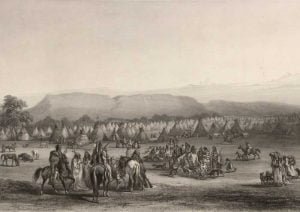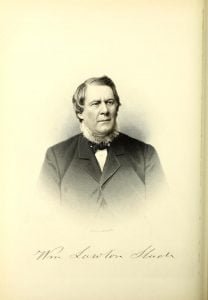For the past hundred years – during almost the lifetime, as it were, of Fall River and its entire industrial life – the name Slade has been continually identified with that industrial life and also prominent in other lines of effort in that great city of spindles. In 1812-13, when the real substantial pioneer establishments in the cloth making industry of Fall River were projected and completed – the Troy Cotton and Woolen Manufactory and the Fall River Manufactory – began the Slade name in this connection, Eber Slade of Somerset being one of the most prominent promoters of one of the corporations; he became its first treasurer and filled the position until in the middle twenties. William Slade of Somerset was one of the owners of the site of these first establishments, and was himself an original proprietor of the Pocasset and Watuppa Manufacturing Companies. The brothers Jonathan and William Lawton Slade were among the founders of the celebrated cotton mills of Fall River, both becoming presidents of the corporation. John Palmer Slade, another of Somerset’s sons, figured largely not only in the industrial life of the city but in other lines, becoming president of both the Shove and Laurel Lake Mills. George W. Slade, one of the “forty-niners” of the Pacific coast, was for full fifty years one of the extensive and wholesale merchants of Fall River and his name, too, is coupled with the city’s industrial life. And of younger generations one or more of the sons of some of these are at this time officially and otherwise connected with this industrial life and in other lines, notably Leonard N. and Everett N. Slade, of the firm of John P. Slade & Son, insurance and real estate; David F. Slade, member of the law firm of Slade & Borden; and Abbott E. Slade, now treasurer of the Laurel Lake Mills.



